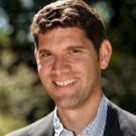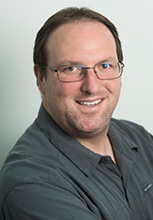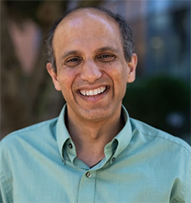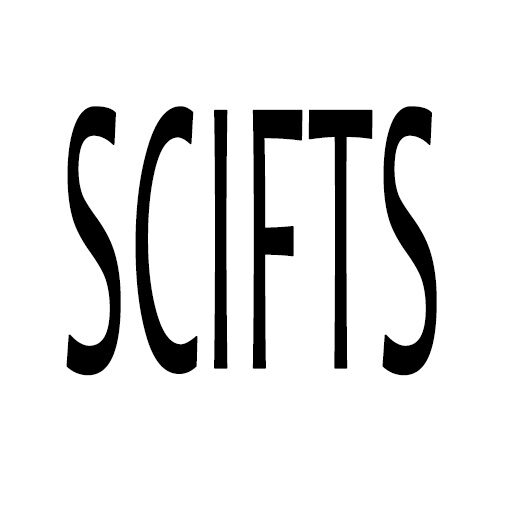AI and Its Effect on the Food Industry
Education Track NPEW
March 4, 2025
1:00-4:00 pm
Marriott Grand Ballroom E
The UC Davis Education Series, in partnership with SCIFTS, presents a dynamic, multi-part seminar on Tuesday, March 4 at the Marriott Grand Ballroom E. This event will feature leading experts discussing groundbreaking advancements in food science and technology. This seminar promises a comprehensive look at the intersection of AI, machine learning, and food technology, with expert insights into how these tools can shape the future of the food industry.

The first speaker, Dr. Edward Spang (esspang@ucdavis.edu) will offer his expertise on “Unlocking the Valorization Potential of Food and Agricultural Byproducts: A Data-Driven Approach.” One-third of global food production is lost or wasted at some point along the food supply chain, from farming and manufacturing to food purchasing and home consumption. One promising area for opportunity is to create valuable food and supplement products from what was originally a waste stream. Innovating solutions requires understanding the multiple dimensions of the material, including the quantity and availability, location, biochemical composition, market value, environmental impact, and how it is currently being utilized (or discarded). In this presentation, Dr. Spang will discuss his work to develop a digital atlas of food and agricultural byproducts, which is crucial for connecting these byproducts to commercial opportunities and making waste reduction both environmentally sustainable and economically profitable.
For more than 15 years, Dr. Spang has pursued research to understand and improve linked food, energy, and water resource systems. He has applied this approach to subjects as diverse as coffee processing, cultivated meat, food waste, microbreweries, and residential water conservation. Dr. Spang serves in many roles, including educator, researcher, and active community leader, all of which are guided by the principle that everyone should have access to sufficient, nutritious food within an environmentally sustainable food system. As director of the Robert Mondavi Institute, he connects faculty and students with a large network of scientists, entrepreneurs, policymakers, consumers, and industry professionals in the food, wine, and brewing sectors. He is also the faculty advisor for the Food Loss and Waste Collaborative, an interdisciplinary research program on campus focused on developing solutions and innovative approaches to reducing food loss and waste throughout the food life cycle.

Dr. Justin Siegel will present on “Computational Protein Discovery and Design – Transformative Catalysts from Concept to Commercial.” In his doctoral studies Justin worked on computational protein design with Dr. David Baker. Since returning to UC Davis to establish his research lab in 2012, Dr. Siegel has focused on designing and discovering enzymes for critical applications ranging from therapeutics development and natural product production to enhancing nutrient bioavailability and synthesizing fuels or chemicals. Computational methods predict protein structures from their basic amino acid sequences and allow scientists to simulate how proteins will interact with other molecules. This enables one to refine a protein’s design and optimize its stability, binding affinity, or catalytic activity. Dr. Siegel emphasizes the importance of using academic research to foster practical advancements.
Dr. Justin Siegel is a Professor of Chemistry, Biochemistry, and Molecular Medicine at the University of California, Davis, with appointments in the Genome Center and as a Visiting Professor of Entrepreneurship at the Graduate School of Management. He also serves as the Faculty Director of the Innovation Institute for Food and Health. Dr. Siegel received his B.S. in Biochemistry from UC Davis in 2005 and his Ph.D. in Biomolecular Structure and Design from the University of Washington in 2011 under the mentorship of Dr. David Baker and Dr. Michael Gelb. During his doctoral work, he contributed to the computational protein design research that Dr. Baker was later honored for with the 2024 Nobel Prize in Chemistry.
He is a co-inventor on more than one hundred global patents, has published over fifty scholarly articles, and has co-founded eleven companies as well as five major consortiums. In recognition of his pioneering research, Dr. Siegel was elected as a Fellow of the National Academy of Inventors in 2023.
Lab: https://siegel.ucdavis.edu/
Institute: https://foodaghealth.solutions/

Dr. Nitin Nitin (nnitin@ucdavis.edu) will host a presentation on “AI for Enhancing Food Quality, Safety, and Nutrition.” This presentation will feature applications of AI approaches to develop novel formulations of food bioactives and their optimization to enhance encapsulation yields and improve bioaccessiblity of bioactives in the gut. Improving the speed, sensitivity, and specificity for the detection of bacteria in food systems and their applications for enhancing food safety and quality will also be discussed. These applications highlight the underlying theme of generating data sets with low-cost experiment and generative AI methods and discuss various AI/machine learning approaches to improve food quality, safety, and nutrition. The presentation will also discuss future directions and opportunities for translation of these technologies to industrial applications.
Dr. Nitin is a professor in the departments of Food Science and Technology and Biological and Agricultural Engineering. He also serves as a vice-chair in the Department of Food Science and Technology and Barrett’s Faculty Fellow. In collaboration with mentees, and colleagues, he has co-authored over 185 peer-reviewed publications and is a co-inventor for ten patents and eight patent applications. Prof. Nitin has mentored the training of over 40 PhD and postdoctoral associates.
The number of SCIFTS member/subscriber free attendees to this Education Track is limited to 50. Please do not make a reservation if you are unable to attend.
To make a reservation for the UCDavis education track, please click here.

